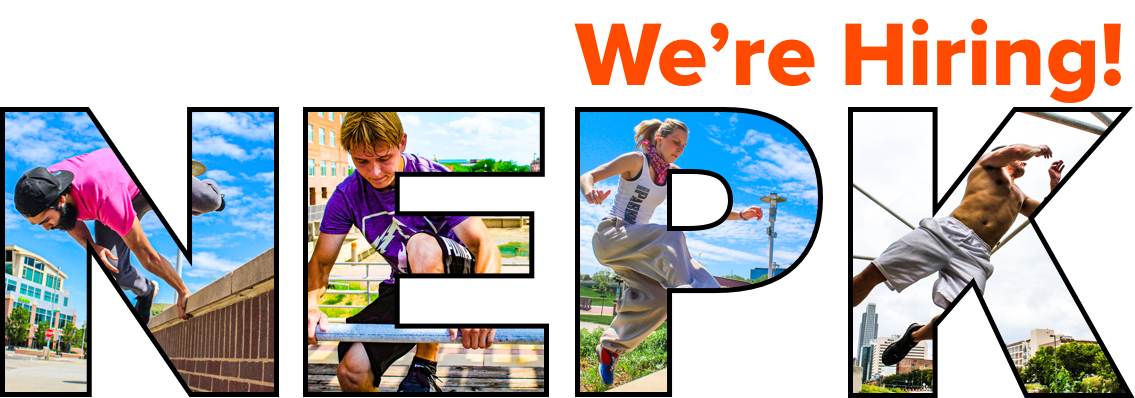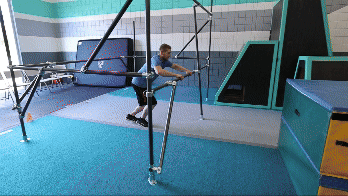The 4 Parkour Competition Formats
Parkour, traditionally a non-competitive discipline focused on creativity, self-expression, and overcoming obstacles, has grown to include structured competitions. These events challenge athletes to demonstrate their skills in various formats, each emphasizing different aspects of parkour. Below, we explore the four main competition formats: Speed, Skill, Style (Big Trick and Flow), and Tag.
1. Speed
Speed competitions focus on completing a predefined course as quickly as possible. Athletes must navigate obstacles efficiently, demonstrating their ability to adapt and find the fastest path through a challenging environment. This format tests physical endurance, route-planning, and decision-making under pressure.
2023 Speed Competition: Advanced Division
Key Elements:
Timed runs through a fixed course.
Penalties for missed obstacles or improper techniques.
Emphasis on efficiency and footwork to maintain momentum.
Speed runs are often crowd favorites due to their high-energy nature and the clear objective of being the fastest.
2. Skill
Skill competitions test athletes on specific movements or set challenges, such as precision jumps, bar swings, or a variety of combinations. These challenges are designed to measure technical proficiency and accuracy.
2024 Skill Competition: Kids Competition
Key Elements:
Predefined tasks with measurable outcomes.
Multiple attempts allowed within a time limit.
Focus on mastery of dynamic parkour techniques.
Skill challenges are an excellent way to showcase the athletes’ capabilities through varying levels of challenges across different categories such as climbing, twisting, jumping, or vaulting.
3. Style: Big Trick and Flow
Style competitions celebrate creativity and technical skill, divided into two subcategories: Big Trick and Flow.
Big Trick focuses on individual high-difficulty moves, where athletes execute complex flips, vaults, or transitions. Judges evaluate the difficulty, execution, and impact of each trick.
2024 Style Competition – Big Trick: Advanced Division
Flow emphasizes the seamless connection of movements in a routine. Athletes demonstrate their ability to maintain rhythm and creativity while transitioning through obstacles.
2024 Style Competition – Flow: Teen Division
Key Elements:
Scored by judges on composition, difficulty, and execution (difficulty and execution for Big Trick).
Encourages artistic personality, expression, and individuality.
Highlights creative use of movements, use of environment, and smooth transitions.
Style events showcase the artistic and technical sides of parkour, allowing athletes to push the boundaries of what’s possible.
4. Parkour Tag
Tag competitions are fast-paced, head-to-head events where athletes compete in a game of chase within a confined obstacle course. One athlete acts as the chaser, while the other tries to evade capture. This format tests agility, strategy, and quick decision-making.
2023 Tag Competition: Advanced Division
Key Elements:
Set time limits for each round.
Alternating roles between chaser and evader.
Points awarded for successful evasions or tags.
Formats could be team-based like World Chase Tag or individual. Tag competitions bring an exciting, interactive element to parkour, emphasizing speed, adaptability, and strategic thinking.
5. Miscellaneous
Among the main four industry competition types above, some local gyms run unique competitions such as:
Stick Competition – competitors have a set number of jumps they must land without taking additional steps upon initial impact.
Online Competitions – competitors submit a video entry of a parkour line against other submissions.
Floor Is Lava – competitors must get from point A to point B without touching the ground.
Conclusion
Each parkour competition format offers a unique lens through which athletes can showcase their abilities. Whether it’s the raw speed of a timed run, the precision of skill challenges, the artistry of style, or the thrilling dynamics of tag, these formats highlight the diverse and dynamic nature of parkour. As the sport continues to grow, these competitions provide a platform for athletes to inspire, innovate, and connect with audiences worldwide.





